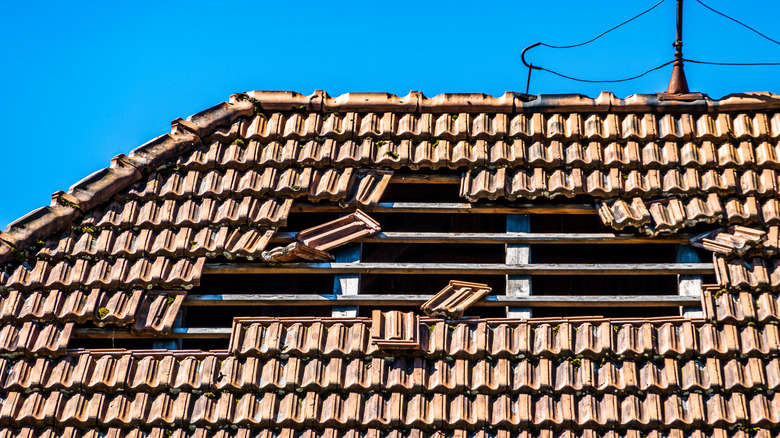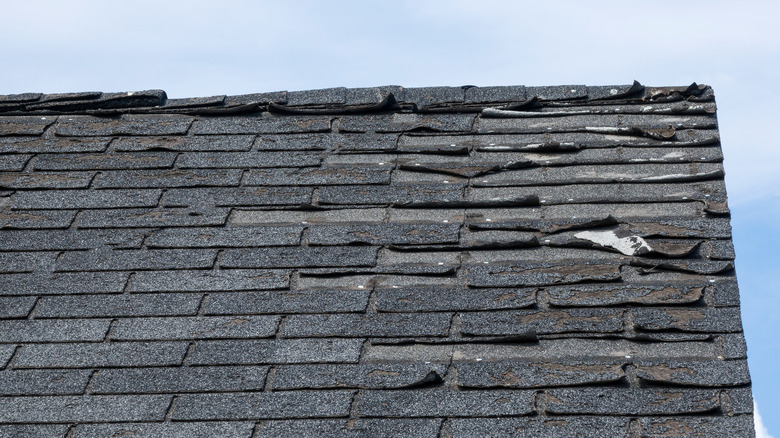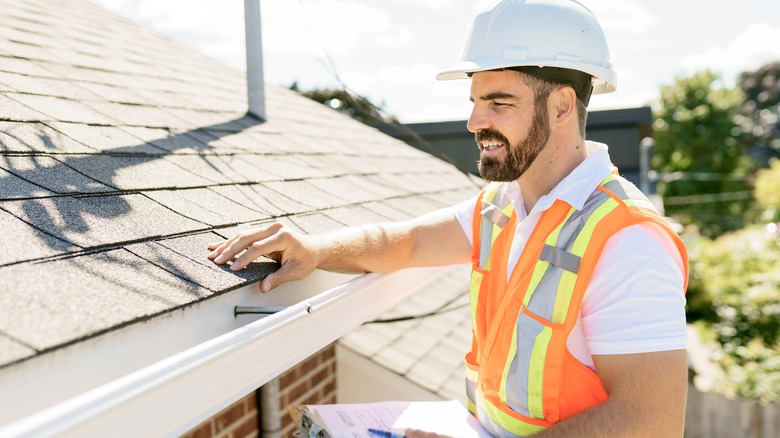How Risky Is It To Buy A House With Roof Damage
Do roofing issues signal a bad omen when deciding to purchase a home? The answer primarily depends on the budget and necessary repairs. At the same time, buyers can look at their current situation for guidance — both the financial aspect and the motivation behind buying the house. For instance, if you're looking for your first new home and want to compare pricing on handyman specials versus houses in good condition, then the seller may be willing to bend a little for a roofing allowance or their listing price. Nevertheless, if you're trying to stay within a fixed budget, and that particular house falls within your range, it would be worth another look only if you can afford the repairs. Otherwise, you're better off not getting into a situation where you might need to borrow more money later to fix a roof.
In another scenario, if you're investing in a property to flip or place it on the rental market, you might already be prepared with some additional revenue for a renovation, especially if the home was purchased at auction. Regardless of the circumstances, a thorough roof inspection conducted by a qualified contractor will be the most important factor that affects this decision since it details the roof's stability.
Fixer-upper or money pit?
As you know, the roof is one of the most expensive parts of a house to fix or replace. So it's understandable if a damaged roof may tempt you into running away from the deal. After all, minor repairs, such as fixing the flashing, replacing missing shingles or mending areas with small leaks, can cost between $150 to $1,500 on average, which is still not cheap.
More extensive repairs, like completely replacing the flashing or repairing major water or hail damage, can set you back about $1,500 to $7,000. Furthermore, you'll need to know more about the overall structural integrity. As an illustration, if you have your eye on a dwelling that has already experienced severe roof damage, it may be hard to tell if the truss, rafters, and decking are sound.
In such a situation, where you're on the fence about purchasing a home with roofing problems, you might ask for an inspection. A professional would detail every single nook and cranny of the roof and attic that require close attention, from the framing to the surface materials. From there, you'll be armed with enough information to decide whether to follow through with the purchase.
When to stay or walk away?
Naturally, if an inspection reveals problems with the stability of the structure, opting to move on is understandable. Anything related to the trusses or the rest of the frame spells trouble with a high price tag.
Another factor to consider is the mortgage you hope to obtain and the homeowner's insurance. Visible signs of roofing issues often result in denials from lenders and insurers. Likewise, motivated sellers might be willing to pay back their asking price or to have the repairs or replacement completed before a contract is signed. Hence, all is not lost if a damaged roof leads to a better deal than you would've acquired otherwise.
Yet another consideration is the age of the roof. If it's older than 10 or 15 years and starting to show its age, then the structure itself could still be sound while the roof needs some work. In that case, your comfort level and budget will let you know if you take this project on.


